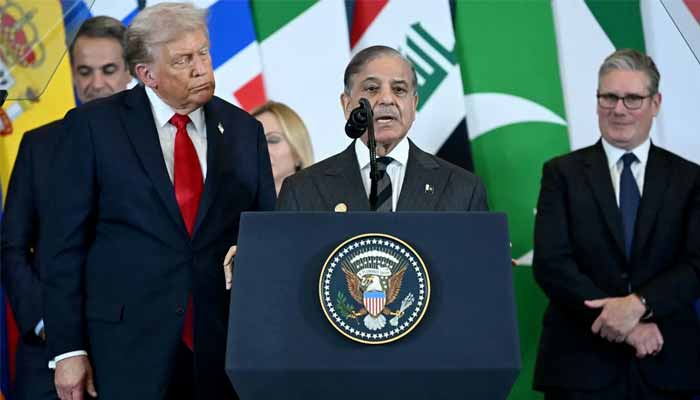Diplomatic peak
For the first time, Pakistan’s foreign policy, defence exports and economic outreach are moving in sync
November 02, 2025

Pakistan is reaching diplomatic heights unseen in its 78-year history. From Riyadh to Baku, from Beijing to Moscow, Pakistan’s handshake now spans continents and commands attention. From Jeddah to Doha, from Astana to Tashkent, Pakistan is anchoring a new arc of trust across the Muslim world. From London to Brussels, from Washington to Beijing, Pakistan is no longer on the margins; it’s back in the conversation.
From isolation to strategic embrace: a US reset unlocks access to multi-billion dollar programmes — EXIM, IMF, World Bank, DFC, IFC. A US reset means cheaper capital, longer tenors and revived investor confidence. A US reset brings technology transfers in energy, digital finance and renewables.
A US reset means $2.5 billion AIM-120 Advanced Medium-Range Air-to-Air Missile (AMRAAM) missiles. A US reset is not just a foreign-policy shift but an economic lifeline wrapped in diplomacy.
There's $3.5 billion in limited recourse project financing for Reko Diq by the International Finance Corporation (IFC), Asian Development Bank (ADB), US International Development Finance Corporation (DFC), Export-Import Bank (US EXIM), Export Development Canada (EDC), Germany’s KfW IPEX-Bank, Sweden’s EKN and Finland’s Finnvera Oyj.
A landmark Saudi Defence Pact marks Pakistan’s deepest Gulf tie in 78 years. Alongside the pact comes a $3 billion deposit extension, $2 billion worth of investment MoUs and a $1 billion oil facility. A $8 billion manpower-export deal and a China-Pakistan export of diesel-electric ‘Hangor class’ submarine deal (China-Pakistan deal is worth $5 billion).
The year (2025) saw $4.6 billion in JF-17 sales to Azerbaijan (June). 2025 saw a $230 million Sudan pact (May). The year saw $7 billion ML-1 rail confirmation. It saw a $2 billion Karachi-Rohri upgrade. It saw Pakistan-Kazakhstan transit-trade and logistics linkages. The year brought Pakistan-UAE trade escalation target of $20 billion.
Yes, Pakistan is all set to play a central role in shaping the emerging Middle East Security Architecture. Imagine, Pakistan is transitioning from ‘observer’ to ‘architect’.
For a common Pakistani, the $3.5 billion Reko Diq financing and $7 billion ML-1 rail upgrade, alongside $2 billion Karachi-Rohri upgrades, will create 100,000–200,000 jobs in mining, construction and logistics. For a common Pakistani, the $8 billion Saudi manpower-export deal and $20 billion UAE trade target could employ 300,000+ workers abroad. Yes, the $4.6 billion JF-17 sale to Azerbaijan, $230 million Sudan pact and a $2.5 billion AMRAAM deal signal a robust defence sector.
For the first time, Pakistan’s foreign policy, defence exports and economic outreach are moving in sync. For the first time, Pakistan is building alliances, not dependencies.
Imagine, Pakistan now has the ‘protector of the Ummah’ status. Imagine, Riyadh now sees Islamabad not just as a 'partner in security', but as a ‘co-architect of regional stability’. Imagine, Pakistan is moving from an ‘aid recipient’ to a ‘security guarantor’. Just imagine, from a ‘security recipient’ to a ‘security partner’.
The dividends of Pakistan’s diplomacy will be visible where it matters most — in employment, energy stability and public morale.
The writer is a columnist based in Islamabad. He tweets/posts @saleemfarrukh and can be reached at: [email protected]
Disclaimer: The viewpoints expressed in this piece are the writer's own and don't necessarily reflect Geo.tv's editorial policy.
Originally published in The News











